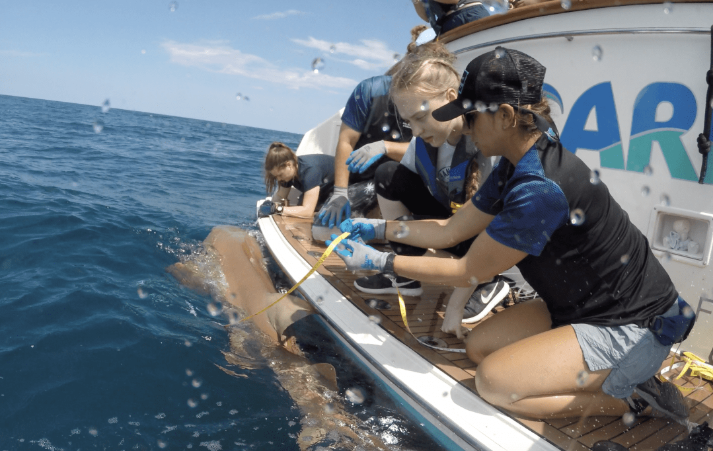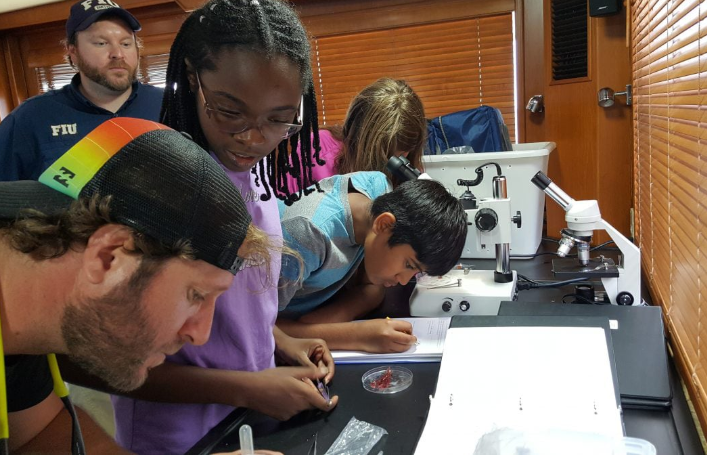
Photo courtesy of Rachel Plunkett via Angari

Audio By Carbonatix
Technology today puts the world at students’ fingertips – but in many ways, education in some communities still lags behind. Despite a push for more science, technology, engineering, and mathematics (STEM) classes and programs in Florida, a large number of public school students still lack access to the real-world training necessary to prepare them for careers in science.
This fall, a group of marine researchers hopes to change that. Florida International University has partnered with the West Palm Beach organization the Angari Foundation to take middle- and high-school students from underserved communities on scientific expeditions for hands-on marine biology experience.
“Some schools in South Florida send their kids on amazing field trips in the water all the time. Other schools a few miles inland never send their students near the water,” says Amanda Waite, director of science education and advancement for Angari. “We want to serve kids from those schools.”
The Angari Foundation is a private boat-chartering group that helps marine researchers rent a vessel for the lowest price possible. The organization takes its name from its two founders: sistres Angela and Kari Rosenberg. (Angela tells New Times it’s pronounced an-jah-ree because an-jerry didn’t sound as elegant.)
The foundation owns and operates a research vessel, the Angari, out of the Palm Beach Marina. The boat has been outfitted with lab space and equipment to allow scientists to work while paying only base operating costs. Through the Coastal Ocean Explorers program, the Angari Foundation and FIU are accepting student applicants to embark on expeditions in the fall to study local shark and plankton populations off the coast.

Students study plankton and algae samples aboard the research vessel the Angari.
Photo courtesy of Rachel Plunkett via Angari
The Angari is equipped with a platform at the rear for hands-on research. Kids who might have been to the beach only a handful of times will get to sit on the platform and peer into the water as sharks come close enough for FIU scientists to haul them onboard for study. If they’re not too frightened by their Jaws moment, the students may then measure and study the sharks in the ship’s lab in the main cabin.
“The kids will be looking at a population at the bottom of the food chain [plankton] and one that’s at the top of the food chain [sharks] and measure important data about them to get them interested in marine biology,” Angela Rosenberg says.
The university and the foundation have already completed a few pilot expeditions to “test the waters” and see what it would take to run the program, but it’s set to begin in earnest in September. The Angari crew members say they want kids who might never have thought about going into a STEM career to find a love for science by sailing out to sea and exploring beyond a classroom experience.
Mary Jackson, a teacher and Marine Conservation Club leader for Wellington Landings Middle School, says her group’s experience on one of the pilot trips was enlightening.
“I had no idea my students would actually be up close and personal with the sharks experiencing what it’s like to be an actual scientist by tagging a variety of shark species,” Jackson says. “It helped me give the opportunity to foster future shark conservationists and scientists, and that to me is priceless.”